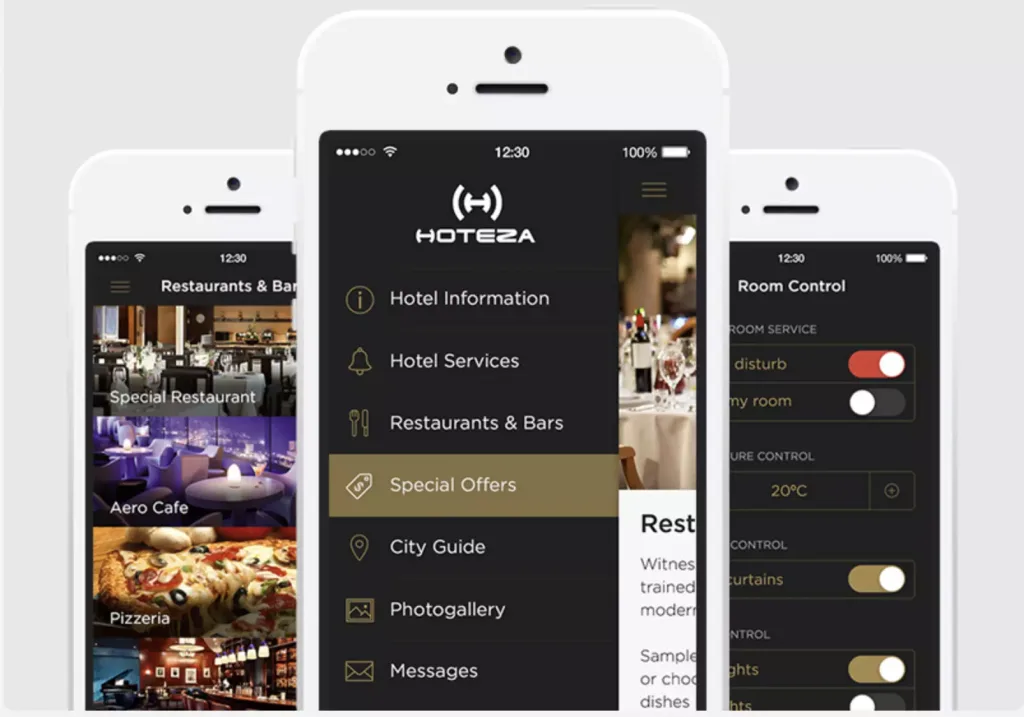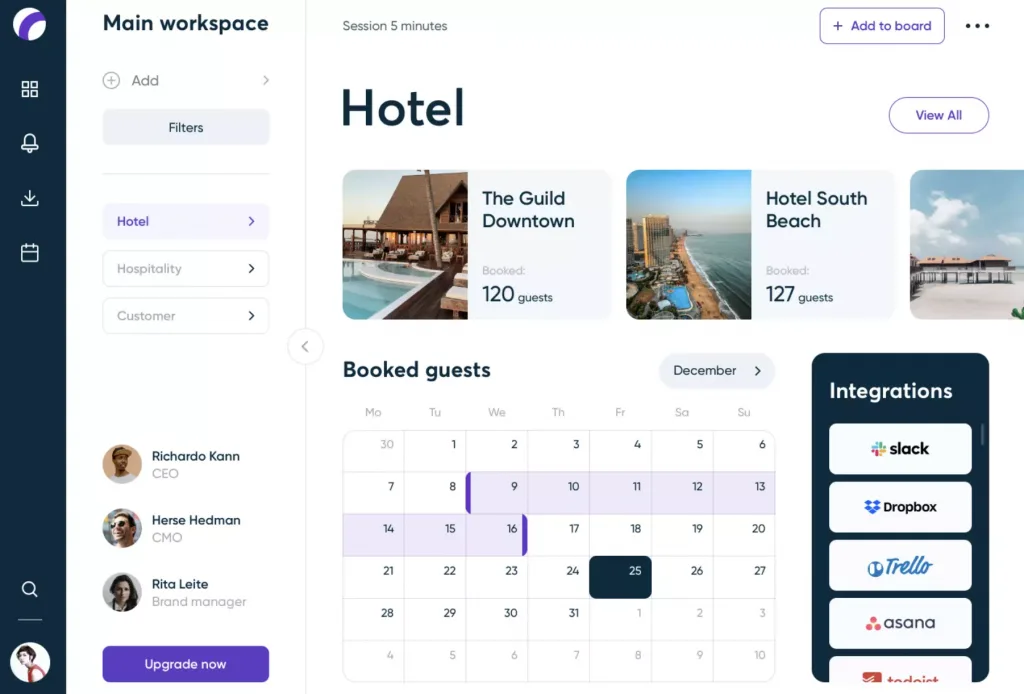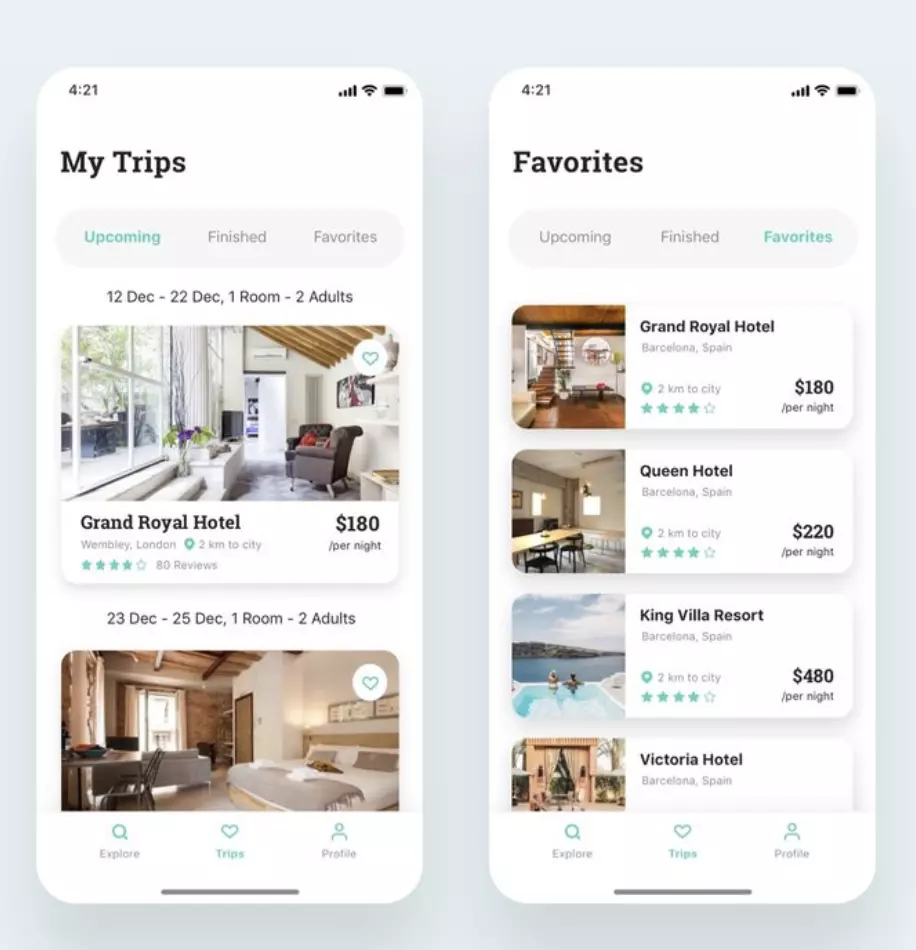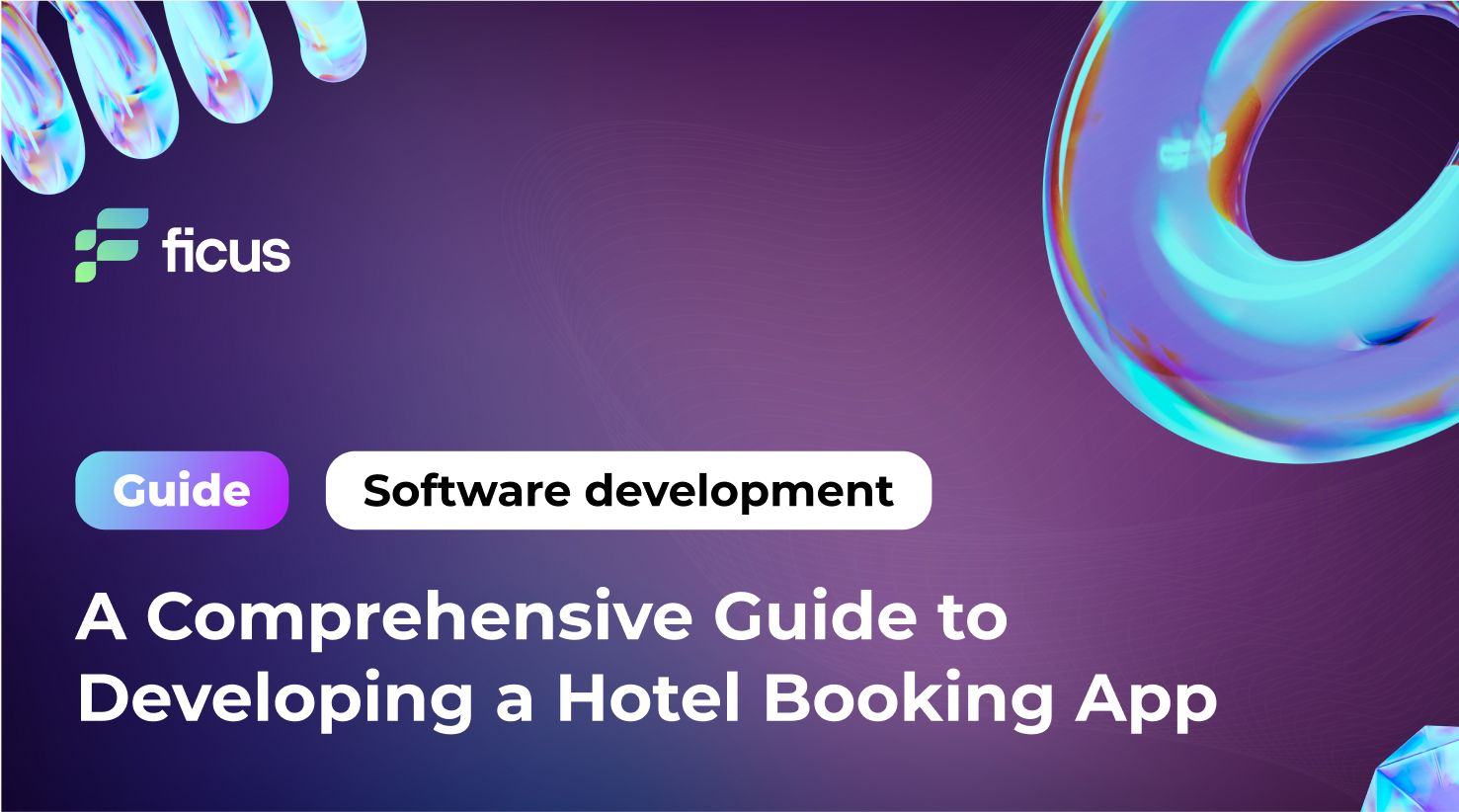The travel and hospitality industries have significantly changed in the modern digital era. As smartphones and mobile apps have gained popularity, hotel booking apps have become increasingly popular. This comprehensive guide will provide valuable insights into the process, features, and cost estimates.
- Hotel booking apps offer convenience, real-time availability checks, and user reviews, enhancing the booking experience for travelers.
- There are aggregator apps, branded apps by hotel chains, and online travel agency (OTA) apps, each catering to different needs and preferences of travelers.
- The development process involves market research, defining app features, designing an intuitive user interface, development, rigorous testing, and incorporating essential features.
Advantages of a Hotel Booking App

- Convenience: Hotel booking apps allow users to search, compare, and book accommodations anytime and anywhere, eliminating the need to visit multiple websites or make phone calls.
- Real-Time Availability: Users can instantly check the availability of rooms, view prices, and make reservations in real-time, ensuring accurate information and avoiding booking conflicts.
- User Reviews and Ratings: Hotel booking apps often include user reviews and ratings, helping travelers make informed decisions based on other guests’ experiences.
Types of Hotel Booking Apps
The market offers a variety of hotel booking apps to suit different needs and preferences. Some common types include:
- Aggregator Apps: These apps compile hotel listings from various sources, allowing users to compare prices, amenities, and availability across multiple hotels.
- Branded Apps: Many hotel chains and franchises have dedicated booking apps, offering exclusive deals, loyalty programs, and a seamless booking experience for their customers.
- Online Travel Agency (OTA) Apps: OTAs offer various accommodation options, including hotels, vacation rentals, and hostels. These apps provide a one-stop solution for travelers, allowing them to book different accommodations.
Do you need Hotel Booking App Development?
Contact usHotel Booking App Development Process

Developing a hotel booking app involves several key steps:
Market Research:
- Identify your target audience.
- Understand their needs.
- Study the competition to gain insights into market trends and user expectations.
Define App Features: Determine the essential features your app should have, such as search filters, user profiles, booking management, payment integration, and customer support.
Design and User Experience: Create an intuitive and visually appealing user interface (UI) design that enhances the user experience (UX) and makes navigation seamless.
App Development: Hire a skilled development team or partner with a reliable app development company like Ficus Technologies to build the app using the latest technologies and frameworks.
Testing and Quality Assurance: Conduct rigorous testing to ensure the app functions smoothly, is bug-free, and provides a seamless booking experience.
Must-Have Features of a Hotel Booking App

To deliver a top-notch user experience, your hotel booking app should include the following essential features:
- User Registration and Profile Management
- Advanced Search and Filter Options
- Detailed Hotel Listings with Photos, Amenities, and Reviews
- Real-Time Availability and Pricing
- Secure Payment Integration
- Booking Confirmation and Itinerary Management
- Push Notifications and Alerts
- Customer Support and Feedback
If we want users to like our software, we should design it to behave like a likeable person.
Alan Cooper
Cost Estimates for Developing a Hotel Booking App
The price of creating a hotel reservation app may differ depending on various factors, including the app’s features’ intricacy, its compatibility with iOS and Android systems, the duration of development, and the location of the development team. It is recommended to consult with experienced app developers or companies like Ficus Technologies for accurate cost estimates based on your specific requirements.
How to Monetize a Hotel Booking App?
There are several monetization strategies for hotel booking apps:
- Commission-Based Model: Earn a commission for every successful booking made through the app.
- Featured Listings: Offer premium positioning to hotels or accommodations willing to pay for increased visibility and exposure.
- In-App Advertising: Display relevant ads to users and generate revenue through advertising partnerships.
- Subscription Model: Offer premium subscription plans with additional features or exclusive deals for subscribers.
Build a Robust Hotel Booking App with Ficus Technologies
Ficus Technologies is your trusted partner if you want to develop a high-quality and feature-rich hotel booking app. With their expertise in app development, UI/UX design, and a deep understanding of the travel industry, Ficus Technologies can guide you through the entire development process, from conceptualization to launch. Their team of skilled professionals will ensure that your app meets the highest performance, security, and user experience standards.
The hotel booking app development process is a multifaceted journey. It commences with comprehensive market research, identifying the target audience, understanding their needs, and gaining insights from competitors. The next crucial step involves defining the app’s features, encompassing search filters, user profiles, booking management, payment integration, and customer support. With these specifications in place, the design and user experience are meticulously crafted to create an intuitive and visually appealing interface. Subsequently, the app development phase ensues, where a skilled team utilizes the latest technologies to bring the concept to life. Rigorous testing ensures seamless functionality, culminating in a high-quality hotel booking app.
Several apps are suitable for hourly hotel booking, depending on your location and specific needs. Some popular options include HotelTonight, ByHours, and Recharge. HotelTonight offers last-minute deals and a wide range of hotel choices, while ByHours specializes in hourly bookings with flexible check-in and check-out times. Recharge caters to luxury hotels and allows you to book rooms by the minute. The “best” app depends on your preferences, location, and the level of flexibility you require. It’s recommended to check user reviews and compare features to find the most suitable app for your hourly hotel booking needs.









This article offers a detailed guide for those interested in developing a hotel booking app. It effectively highlights the advantages of such apps, their types, and the development process. Including essential features, cost estimates, and monetization strategies makes it a comprehensive resource for anyone considering entering the hotel booking app market. The mention of partnering with Ficus Technologies adds credibility to the development process.
It covers these apps’ advantages, types, and development processes, making it a helpful resource. The inclusion of cost estimates and monetization strategies adds practical value, and the mention of partnering with Ficus Technologies offers a reliable development solution.